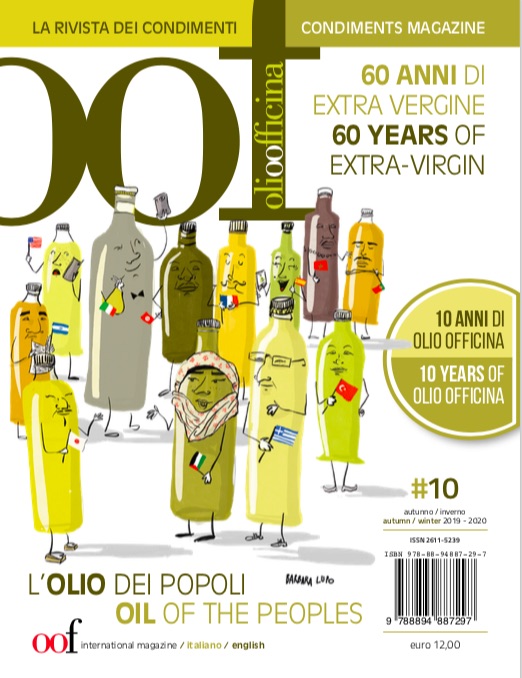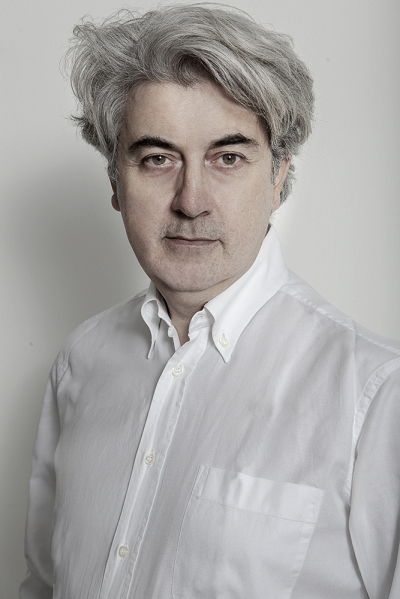
We report the editorial by the director Luigi Caricato which appeared within the number 10 of OOF International Magazine. It’s evident how the world has changed, alongside the expectations for 2020, after the terrible emergency of Covid-19. Enjoy the reading
I think 2020’s a great number, because it’s 20 repeated: 20-20. I don’t want to dwell too much on its meaning – I’m no numerology expert –, but quite simply I find the pair of 20s attractive; they have a certain charm and mystery about them. One thing’s for certain: 20 represents duality, since it’s the union of two elements. This immediately reminds me, by association, of two anniversaries that are very important to me, not only because they unite and intertwine my personal and professional life, but because they coincide in 2020.
On one hand, this year marks 60 years since the introduction of the “extra-virgin olive oil” product category.For anyone who doesn’t know – and that’s probably most people –, it all started with an Italian law passed on 13 November 1960. At the time, defining an oil made from olives as “extra-virgin” was akin to someone walking into a packed church banging a gong just as the priest was reverently holding up the Eucharist. The impact of the new name was in fact devastating: it was perhaps seen as inaccurate, imperfect, out of place, or inappropriate, I can’t say. What’s certain is that the new name was introduced even though there weren’t enough extra-virgin olive oils on the market to justify it. In fact, to be honest, at the time oils we would now classify as high-quality were pretty thin on the ground. The new name had obviously been conceived with the future in mind. The word “virgin” attributed to oil was per se a source of confusion, but had actually originated many years earlier, on 27 September 1936, with the passing of Royal Decree no. 1986. It was in that period, when Italy was in the grip of fascism, that oil obtained from olives was given the name of “superfine virgin olive oil”. Then, as now, a long sequence of words was used, when a simpler, more realistic and immediate expression would have sufficed: “olive juice”.
The ancient Arabs took a more pragmatic approach than our contemporaries, and in fact named the product az-zait, i.e. “olive juice”. The Spanish wordaceite in turn derives from the Arabic, and thus itself also indicates “olive juice”, making the modern-day aceite virgen extra de olivasound somewhat pleonastic. When it comes to useless redundancy, however, EU bureaucrats are no better. In case you hadn’t realized, bureaucrats are a curse that fell upon us as a punishment for our sins. In particular, bureaucrats who draft legislation are seeds of evil that poison human endeavour, destroying all its original beauty. Today, despite themselves, olive oil producers are forced to include on labels, alongside the long procession of words specifying the product category “extra-virgin olive oil”, also the following superfluous, pleonastic – not to say perverse – information: “superior category olive oil obtained directly from olives and solely by mechanical means”. Such pointless over-specification is almost offensive in its pedantry, as well as an example of deplorable adverb abuse. I don’t understand why the olive oil trade is so utterly in the thrall of bureaucrats. However, putting aside such digressions, for which I trust you will forgive me, we mentioned that 2020 marks the 60th anniversary of a product whose worth is acknowledged the world over. So, I wonder: after so many decades, what difference can this long name on the label make? Above all, what still needs to be done for an oil whose multiple trade names perhaps deserve to be re-discussed and reformulated?
Don’t forget that the various types of olive oil are currently associated with four distinct product categories. Extra-virgin is not the only one, but to avoid subtracting vital space from my main point I’m not going to list them all here. And speaking of my main point, I want to tell you about the other thing that’s very important to me: ten years of the Olio Officina project.
Olio Officina is basically me, but I have always tried to involve other people – and many have come on board, although not as many as I would like – who share my belief that olive oil is first and foremost a product of our food culture and not just a commodity. I don’t know if I’ve succeeded in achieving my aim: that of presenting olive oil as a cultural marker. In reality, everyone is concerned above all with money and making a profit. This of course is very important, because we need to earn a living, but ignoring the cultural aspects of olive oil would represent a heavy, undeserved defeat for the product we celebrate in every issue of this magazine. This magazine, by the way, will be seeing some changes in 2020.
What’s changing? First of all, there will be a transition from quarterly to half-yearly issues, and we will become the magazine for all condiments, none excluded. Issue 10 of OOF International Magazine already specifies autumn-winter on the cover. It should in fact have been released in autumn, but to make publication coincide with ten years of Olio Officina, I decided to postpone it. Please forgive all this playing around with the number 10; it’s a bit childish, I know; I have to admit that’s just the way we are (I am), with the occasional surprise in store. The number ten symbolizes perfection, but also represents the cancellation of all things. So always stay on guard: 10 = 1 + 0 = 1. Ten means starting afresh, and never repeating yourself: starting afresh also because the search for perfection is a never-ending one. There’s always a new beginning. Ten – which coincides with the issue number of the magazine you’re leafing through (and hopefully reading), but also with the tenth anniversary of Olio Officina – is thus the number of change. It’s an invitation to keep rising to new challenges. Ten is a triangular number and also the sum of the first three triangular numbers (1 + 3 + 6 = 10). But ten is many other things too. I’ll stop now, though; I don’t want to bore you any further, by going on about the 20-20 of 2020, for example, or you’ll end up thinking that I have an obsession with figures. That I’m a bit of an odd number, so to speak.

To comment you have to register
If you're already registered you can click here to access your account
or click here to create a new account


Comment this news